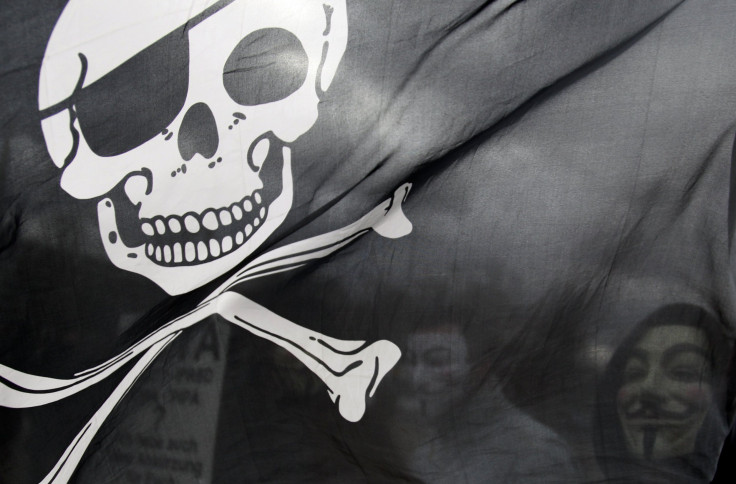How Private Torrent Trackers Work: Inside The Next Exclusive, Invite-Only World Of Illegal Downloading

You just can’t steal stuff like you used to anymore. With all of the heirs to the Pirate Bay either shut down or infected with malicious software, expect online pirates to flock to more reliable, sophisticated sites that are only accessible with an invitation. That’s right, piracy is going private.
The Pirate Bay, unceremoniously yanked offline last year in a European police raid, was quickly replaced as the go-to destination for illegal media consumption by Kickass Torrents, Popcorn Time and YIFY movies. But each of those sites, known as “public trackers,” has either been forced offline by legal pressure from copyright holders or contaminated with so much malware that Google had to issue a warning to would-be visitors.
None of which had any impact on “private trackers,” a community of exclusive piracy sites that control registration by giving users a certain number of invitations. If each user can only invite one or two trusted friends, the logic goes, then the site will keep populated with quality files and avoid many of the pitfalls that make public trackers so risky (malware, law enforcement, slow downloads, etc.).
It’s difficult to gauge how many private tracker sites exist though with the fall of so many notable public trackers, it’s clear that many of the millions of people who pirate content everyday are on the hunt for a new place to their bootleg TV fix.
What You Need To Know
Private trackers are for dedicated pirates.
Sites like Demonoid (the most popular private tracker before it was shut down in 2012) are in demand because they offer better security, more privacy faster speeds and, generally, better content. But they also come with more rules, meaning users need to upload a certain number of files for every file they download. That’s called the ratio and, while ratio minimums vary depending on the site, many administrators won’t hesitate to banish users trying to take advantage of the site.
Often, uploaded files also need to meet certain criteria meant to ensure that only quality files are available on the site. While Kickass Torrents’ list of most popular music downloads might be made up of compressed mp3 files, some private trackers prohibit uploading anything other than FLAC, ALAC or other uncompressed (albeit larger) files meant to keep the integrity of the original recording.
Before record stores all but disappeared from the American retail landscape, they stood as maybe the sole retail location where employees could openly mock customers. Clerks, by standing behind the register, were free to recommend or disavow any music selections customers made. With that condescension, though, came an implicit trust that whatever the cashier was recommending was probably worth investigating.
The same dynamic exists within the private tracker community. Just like certain record stores specialized in certain specific music, different torrent sites now promote themselves as the best destination for Mac and PC software or audiobooks or high definition Blu-ray movie rips.
If Kickass Torrents is the Best Buy or Wal-Mart of piracy sites -- where you can log on, download something popular, and get on with your day -- then What.CD is the equivalent of the iconic Amoeba Records in Berkley, California. What.CD, a private music tracker, has been online consistently since late 2007, offering hard-to-find music and a tight-knit community that polices the site and discusses music.
What.CD has managed to stay online thanks in part to tight restrictions on everything from avatar image limits and nonnegotiable lifetime bans for things like creating multiple accounts.
“All staff decisions must be respected. If you take issue with a decision, you must do so privately with the staff member who issued the decision or with an administrator of the site,” What.CD’s rules state. “Complaining about staff decisions in public or otherwise disrespecting staff members will not be taken lightly. … Access to this website is a privilege, not a right, and it can be taken away from you for any reason.”
Such enforcement has helped the site keep a low profile for nearly a decade. The site has only made headlines when users did their jobs too well. The Radiohead song “These Are My Twisted Words” appeared on What.CD days before the album actually was released, and unpublished stories by reclusive author J.D. Salinger were available briefly on What.CD in 2013.
Piracy Is Against The Law, And Expensive
From a legal perspective it doesn’t matter if user downloaded copyrighted content from the Pirate Bay or a more reliable private tracker. Stealing is stealing. While academic articles and other noncommercial material is available on various websites, the vast majority is content that actually belongs to HBO or Sony Pictures or the garage band touring the country in a van.
Because so many downloads are untracked, it’s difficult to nail down exactly how much revenue piracy costs the entertainment industry.
The Recording Industry of America says illegal music downloads cost the U.S. economy $12.5 billion a year, including 70,000 lost jobs. The Motion Picture Association of America previously pegged losses due to online piracy at $58 billion though that figured was widely disputed. Independent studies have suggested the MPAA’s true loss is closer to $8 billion annually.
Great, So How Do I Get Invited?
Good luck with that, n00b.
Unless you have a friend with an invitation to the other side of the velvet rope, private trackers are notoriously difficult to access. Users can buy or sell invites on the side, but open, tracker-focused discussion communities almost never allow users to grovel for invitations. The best bet is to watch Reddit or social media for when private trackers advertise brief open-invite periods that sometimes last only hours.
© Copyright IBTimes 2025. All rights reserved.





















